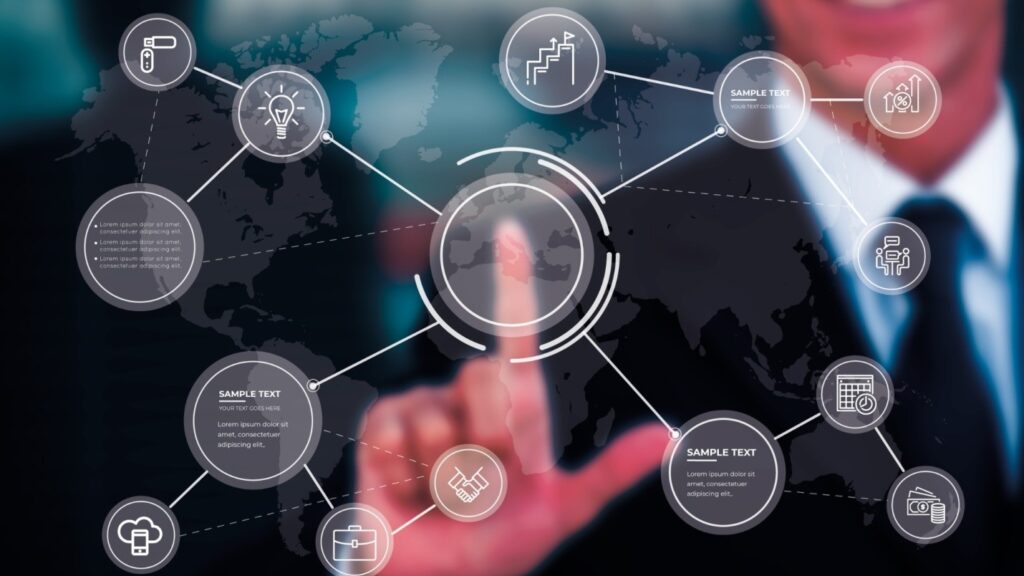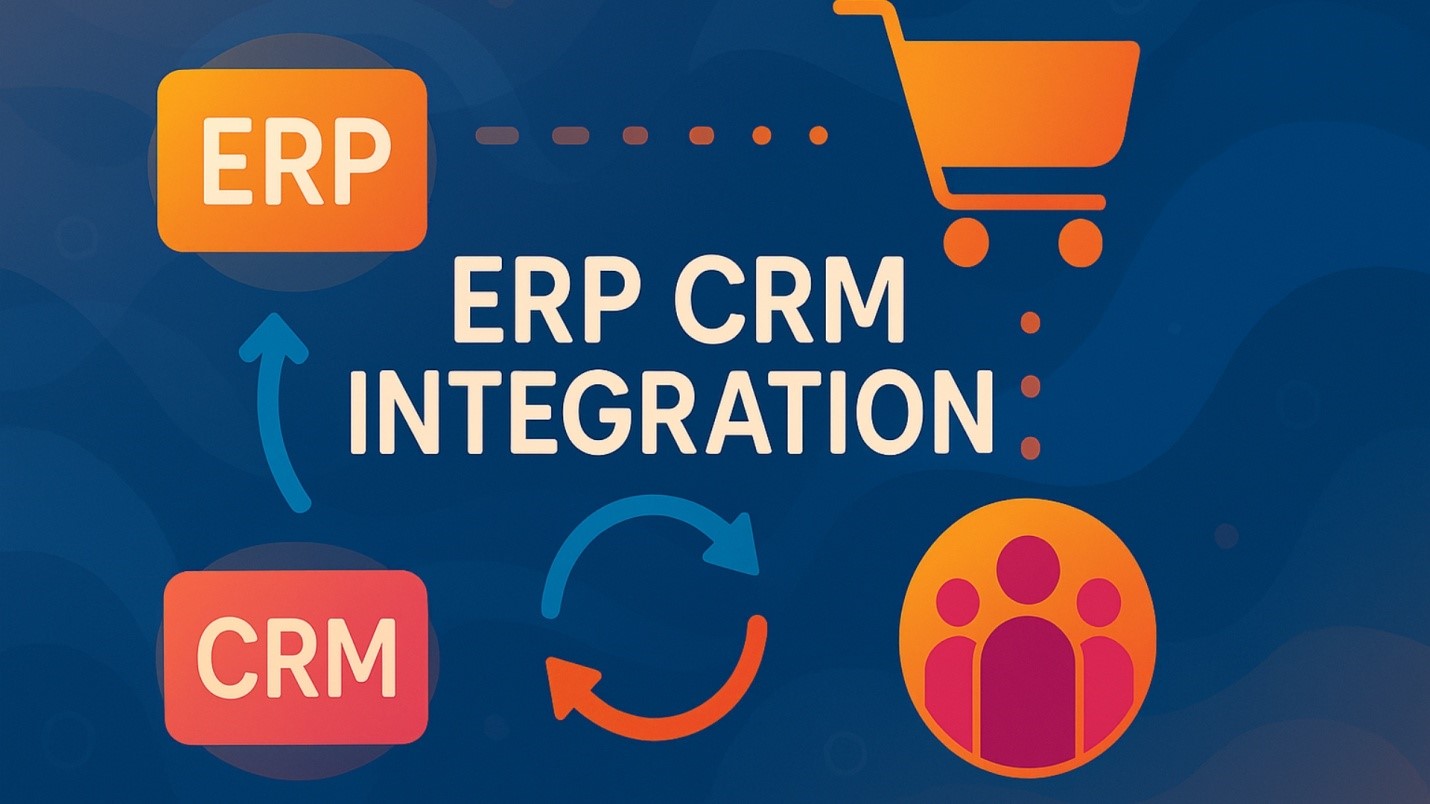Many businesses use different tools to manage sales, customer service, inventory, and accounting. These tools often work alone. When your ERP and CRM software are not connected, it becomes hard to get a full view of your business. You may waste time moving data. You may miss chances to improve customer service or reduce costs. This is where ERP CRM integration helps.
ERP CRM automation means your systems work together. It centralizes your customer, sales, and inventory data in a single location.It eliminates the need to manually transfer data between systems. This reduces errors and saves time. You can respond to customer needs faster. Your teams can work better with shared data. This simplifies your workload and supports your growth.
Bringing Sales and Operations on the Same Page
When sales and operations teams use different tools, they don’t always have the same data. Sales may not see current stock levels. Operations may not know what customers want. This can lead to delays and mistakes. You might promise items that are out of stock. You may ship late or miss service requests.
ERP CRM integration connects sales with operations. Everyone sees the same data. Your sales team knows what’s in stock. Your support team knows the order status. This builds trust with your customers.
Here’s how ERP and CRM software helps bring teams together:
- Shared Customer Data: When sales talks to a customer, they see the full history. They know the last order, the last call, and any support issues.
- Faster Order Handling: Sales sends an order. The ERP gets it right away. This speeds up processing.
- Better Forecasting: When sales and operations use the same data, they plan better. They can see what customers want and prepare on time.
- Smooth Communication: With shared tools, your teams work together. They avoid back-and-forth calls and emails to find basic info.

One Dashboard for Everything That Matters
Your teams may check many tools each day. One tool for sales. One for inventory. One for finance. This takes time. It also leads to missed tasks and errors.
With cloud-based ERP CRM, your teams log in to one place. They get updates, alerts, and tasks all in one dashboard. This keeps your business on track.
Let’s look at what a connected dashboard offers:
- Real-Time Updates: Everyone sees live data. No need to wait for reports. You get updates as things happen.
- Quick Decisions: With all the data in one view, you don’t need to guess. You act fast with full information.
- Task Reminders: The system tells you what’s due. This could be a customer call or an order to pack.
- Simple Tracking: Track sales, stock, and payments from one place. You don’t switch between apps.
Less Data Entry, More Work Done
When tools are not linked, your staff spends time copying data. They enter the same order in the CRM and then in the ERP. This wastes time. It can also lead to mistakes. A wrong number or name can delay an order or cause confusion.
With ERP CRM automation, this does not happen. You enter the data once. The system shares it across all tools. Your team does less work. They focus more on helping customers and closing sales.
Benefits of reducing manual work:
- Save Time: Enter data once. Focus more on selling and less on data entry.
- Fewer Errors: When data moves between systems on its own, there are fewer mistakes.
- Better Focus: Your team works on tasks that grow the business. They don’t spend time fixing errors.
- Clear Reports: With one data source, your reports are clean and easy to read.
Always Ready for Growth
As your business grows, your tools should grow too. But if your systems are not connected, growth brings more issues. You may need more staff just to manage data. Reports may take longer. Customer service may drop.
With ERP CRM integration, your systems are ready to grow with you. You don’t need more people to handle more orders. Your tools handle the work. You stay fast and clear, even with more customers.
Ways integration supports growth:
- Easy Scaling: Add more users or locations without adding tools.
- Custom Workflows: Build workflows that match how you work. Change them as you grow.
- Data Security: Cloud tools keep your data safe. You control who sees what.
- Remote Access: Your teams log in from anywhere. This helps if you work across cities or countries.
A Clear Path from Sale to Delivery
Many businesses lose time between selling and delivering. The sales team closes the deal. Then someone must tell operations. This delay causes issues. The customer may wait longer. Stock may not be ready. Support may miss steps.
With ERP CRM integration, this handoff is smooth. Sales close a deal. The system alerts operations right away. Delivery or service teams act fast. This keeps your business moving and your customers happy.

This integration makes handoffs easy:
- Auto-Generated Tasks: When a sale closes, the system creates tasks for the next team.
- Live Status Updates: All teams see order status, delivery updates, and payments.
- Fewer Delays: No more waiting for emails or calls to start the next task.
- More Happy Customers: Quick service leads to better reviews and more referrals.
A Smart Move That Pays Off
If your tools don’t work together, your team works harder to get less done. You risk mistakes, delays, and missed sales. Connecting your ERP and CRM software brings everything into one flow. You sell, serve, and deliver from a single system. You grow with less stress.
Using cloud-based ERP CRM gives you full access to your business, anywhere. It reduces cost, saves time, and helps teams work together.
The Farber Consulting Group Inc. helps businesses like yours make this shift. We build smart, flexible systems that match your needs. With custom tools for sales, support, and operations, you can grow faster and serve better. Our goal is to help you connect your data, your teams, and your future.
